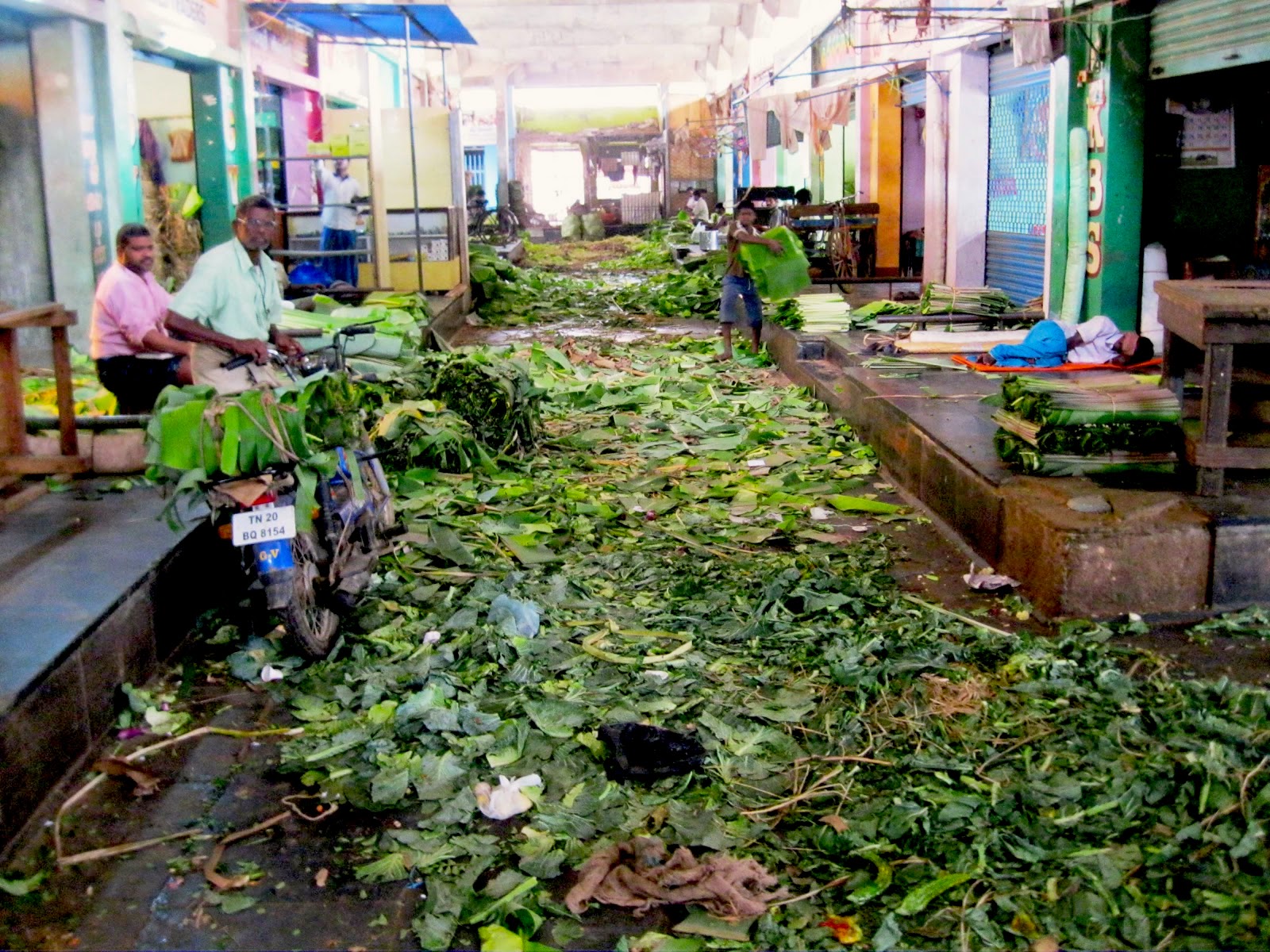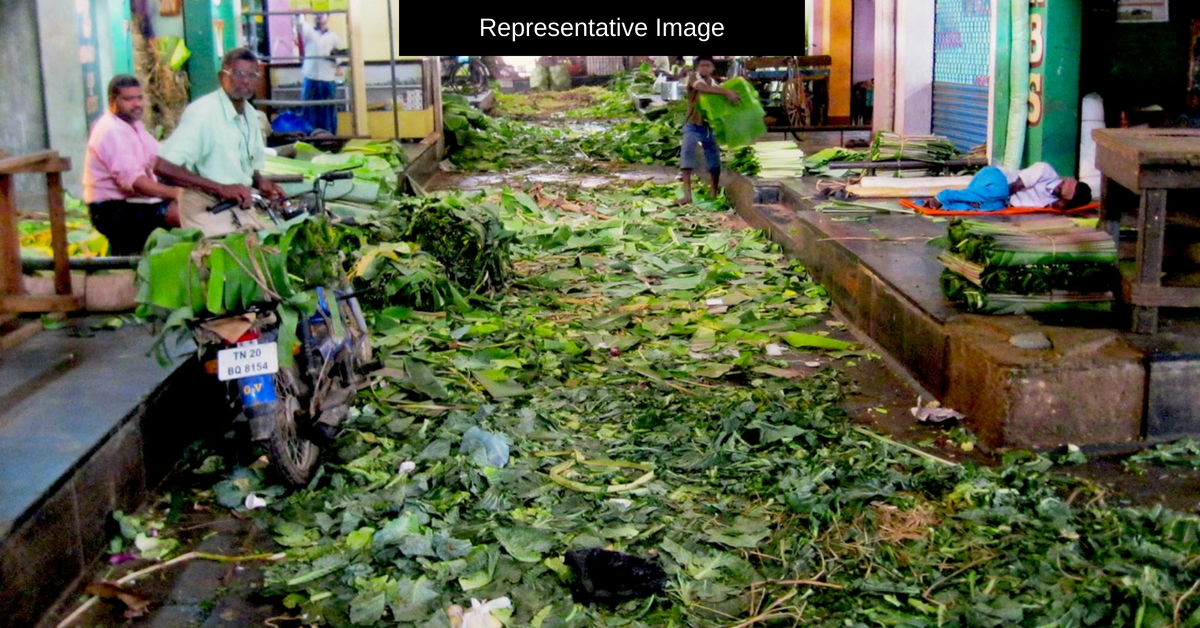Compared to towns and villages, the waste burden of metropolitan cities is not only moving forward at an unprecedented rate but is also causing significant repercussions to the environment by way of landfills as well as heavily polluting the water bodies.
Have you ever wondered about how the vegetable sellers and vendors in vegetable markets across cities dispose of the produce that ends up unsold and has begun to decay?
These are not small quantities we are talking about, but mounds of crop refuse that have to be cleared with the help of JCB loaders and tippers, only to end up in landfills or dump yards.
Since crop refuse is completely biodegradable, it makes little sense in routing this waste to the same channels where plastics and other non-biodegradable waste is sent. Instead, it could be utilised for composting and other agrarian purposes.
That is exactly what Shri Shankarlal Sundarbai Shasun Jain College for Women in T Nagar, Chennai has been doing by running a biogas plant to fuel its canteen operations on the campus.

Routing a portion of vegetable refuse from the vegetable market on the Station Road in West Mambalam, the biogas plant has managed to replace six out of 90 commercial LPG cylinders used every month by the college kitchen.
“Students and the staff of the college would pass through the market while heading towards the Mambalam railway station. The place is littered with garbage and is slippery. We decided to use biodegradable waste from here for our biogas plant, as we knew that the biodegradable waste generated on the college campus would not be sufficient. The gardener of the college goes to the market every day and collects the vegetable waste,” Sundara Meena, a faculty member at the college told The Hindu.
For every 50 kg of biodegradable waste that is fed into the biogas plant, it produces 2 kg of biogas, and alongside the fuel, the slurry that is produced by the plant as a byproduct is used as manure. One particular thing the college keeps in mind is to avoid acidic and fibrous waste including banana leaves and peels of citrus fruits as well as dairy products.
The concerned team now intends to expand their initiative and tie up with two textile shops in T Nagar to collect food waste and vegetable peels generated in their food courts.
Not too far away from is the Tambaram Municipality, which has begun executing different waste management initiatives with the objective of reducing the amount of waste ending up in landfills.
In a meeting recently convened under the leadership of G Prakash, who is the Commissioner of Municipal Administration, the decision of segregating waste right at source points was given the nod.
To mobilise the scheme, the civic body would be constructing 20 sheds for micro-composting under a budget of ₹6.6 crore. The the first such shed was recently inaugurated by K Krishnamurthy, the Tambaram Municipal Commissioner, on Velachery Main Road in Aadhi Nagar, Selaiyur.
“These micro-composting centres will use the kitchen, garden and food waste from households and produce organic garden manure in 40 days. The manure will be supplied to residents free of cost,” Krishnamurthy told The Hindu.
According to Sanitary Officer C Arivuchelvam and Inspector N Sivakumar, who oversee solid waste management in the municipal limits, not only are these micro-sheds environment-friendly, these also do not emit a foul stench which usually arises due to waste decay.
You may also like: Got Old Gadgets You Don’t Use? The Rajasthan Govt. Will Now Buy Your e-Waste!
Municipal authorities have identified seven locations, where slightly larger micro-composting sheds would be placed at the cost of ₹50 lakh and work for which is already underway. For the remaining areas, the project would be initiated in a phased manner.
“Residents have been requested to send biodegradable waste for six days, and on Wednesdays, they can send non-biodegradable waste through the conservancy workers. The details of the new system are being disseminated to residents through awareness programmes. With cooperation from residents and commercial establishments in the coming months, the recycling of these wastes will bring in more greenery in the municipal limits,” added the Commissioner.
(Edited by Gayatri Mishra)
Like this story? Or have something to share?
Write to us: contact@thebetterindia.com
Connect with us on Facebook and Twitter.
NEW: Click here to get positive news on WhatsApp!
If you found our stories insightful, informative, or even just enjoyable, we invite you to consider making a voluntary payment to support the work we do at The Better India. Your contribution helps us continue producing quality content that educates, inspires, and drives positive change.
Choose one of the payment options below for your contribution-
By paying for the stories you value, you directly contribute to sustaining our efforts focused on making a difference in the world. Together, let's ensure that impactful stories continue to be told and shared, enriching lives and communities alike.
Thank you for your support. Here are some frequently asked questions you might find helpful to know why you are contributing?

